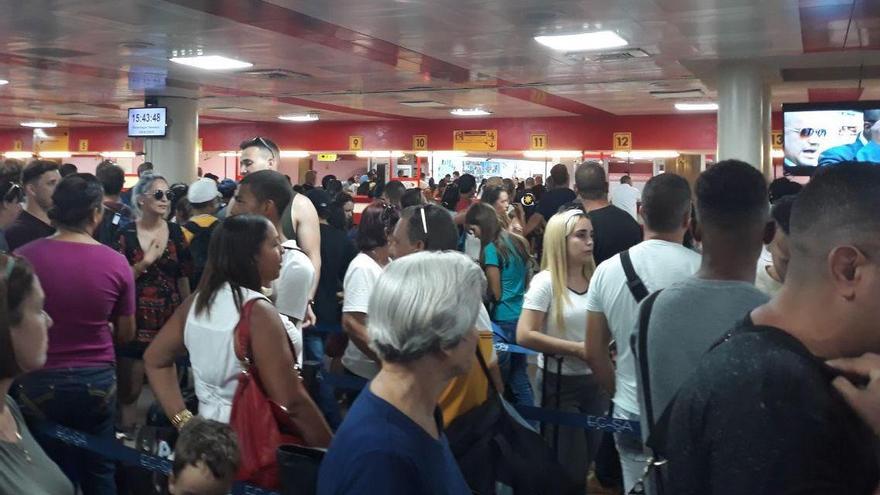
![]() 14ymedio, Havana, 17 December 2019 — The methods of the Cuban Government to repress the opposition have grown in subtlety in recent times, as has been denounced on multiple occasions. The most recent organization to call attention to this fact is the Foundation for Human Rights in Cuba (FHRC), which released a statement on Monday that warns of this change and launches a battery of recommendations to address it.
14ymedio, Havana, 17 December 2019 — The methods of the Cuban Government to repress the opposition have grown in subtlety in recent times, as has been denounced on multiple occasions. The most recent organization to call attention to this fact is the Foundation for Human Rights in Cuba (FHRC), which released a statement on Monday that warns of this change and launches a battery of recommendations to address it.
For the FHRC, the new formulas consist of blocking the exits or trips abroad of people critical of the Government (the government defines them as “regulated”), the increase of administrative measures against non-militant critics, the immobilization of activists in their homes to cancel their meetings and activities, and the fabrication of common criminal cases to justify prison sentences. On the upper end of the scale is the ultimatum to leave the country with the threat of more serious measures if they decide to stay.
To address this new strategy, the FNRC is asking the international community and NGOs to readjust the methodology used to collect repression data in order to include these cases that could be omitted: recording house arrests, “regulated” status, accusations of “pre-criminal dangerousness,” and administrative sanctions, in addition to providing a complaints channel for the injured.
Other suggested measures are the establishment of databases of the individual repressors that include all types of personal and professional data, as well as the accusations they make against citizens; the application of international sanctions on them and their families, which may consist of denying them visas or prohibiting the sending of remittances to them from abroad; and facilitating telecommunications for citizens who show their interest in reporting.
The Foundation for Human Rights in Cuba admits that the arrests have clearly dropped, from 9,942 in 2016 to 2,873 in 2018, according to data from the Cuban Commission on Human Rights and National Reconciliation, whose activity has ceased but whose data gathering been assumed by the Cuban Center for Human Rights.
However, this decrease in arrests is not due, the organization said in its statement, “to the fact that the authorities have become more benevolent, but to the greater effectiveness of the complaints of more and more citizens with access to digital technologies joined with the creation of customized databases abroad with information on repressors, which has already led to international convictions and sanctions.”
According to the FHRC, since the international rejection sparked by the Cuban government’s actions in the Black Spring of 2003, repressive methods have been blurred to lessen criticism while maintaining levels of coercion.
____________
COLLABORATE WITH OUR WORK: The 14ymedio team is committed to practicing serious journalism that reflects Cuba’s reality in all its depth. Thank you for joining us on this long journey. We invite you to continue supporting us by becoming a member of 14ymedio now. Together we can continue transforming journalism in Cuba.
